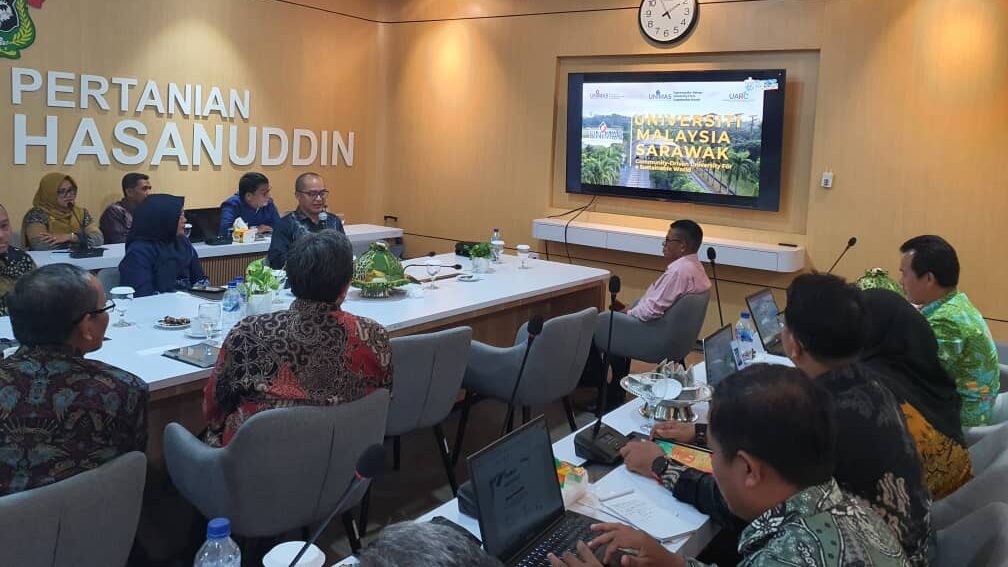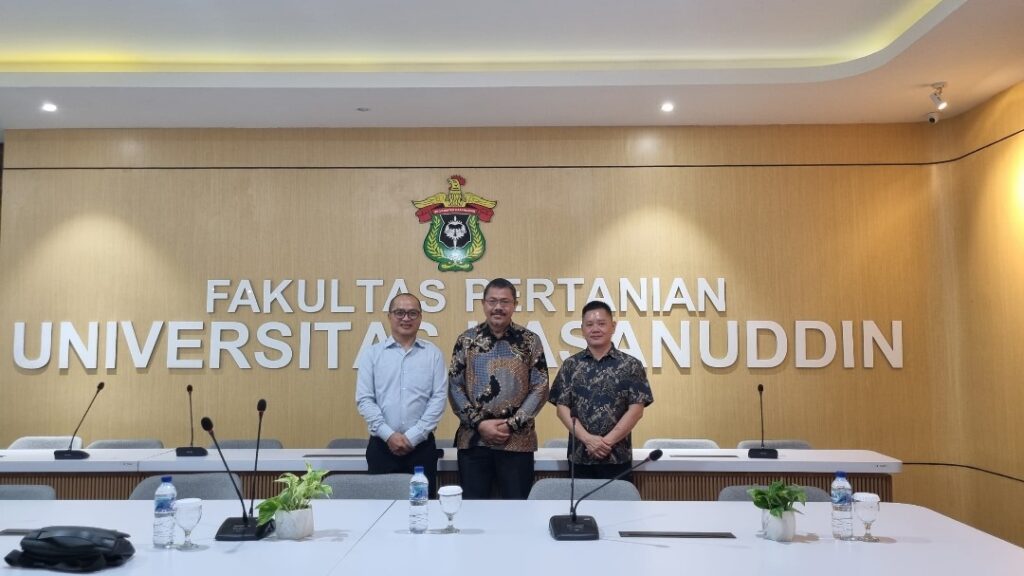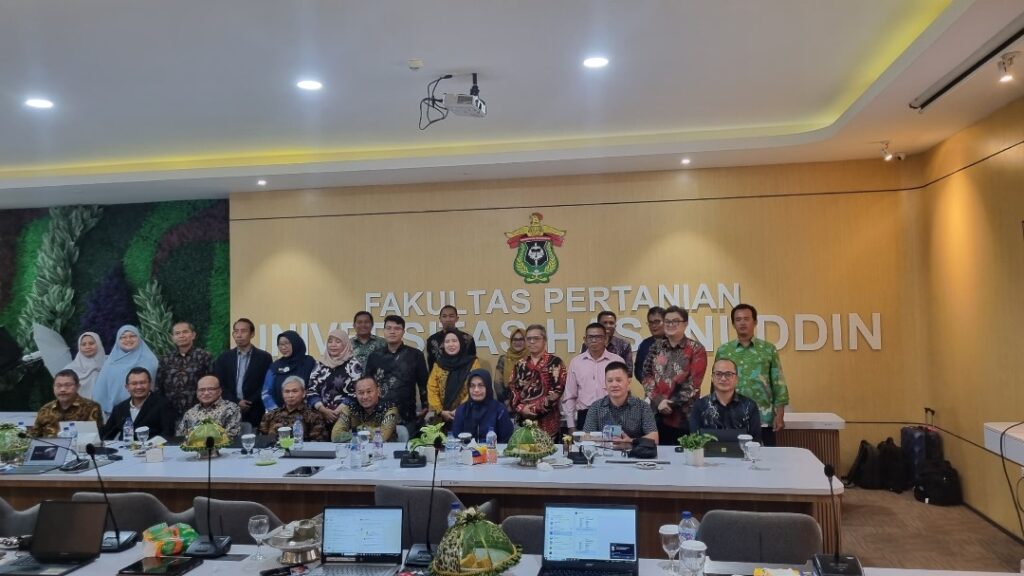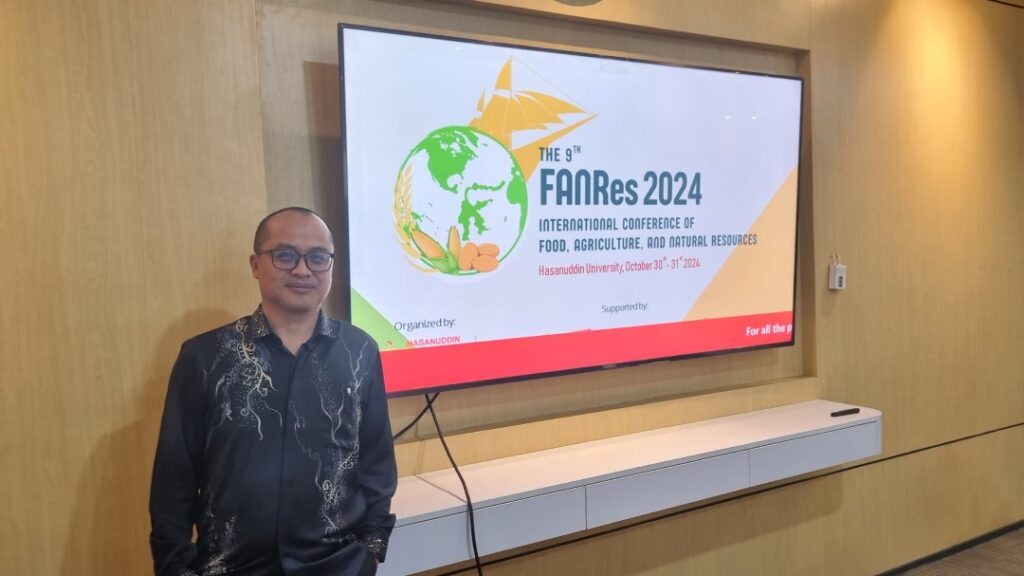
Makassar, Indonesia – Dr. Walftor Dumin, a lecturer and researcher from the Agrotechnology Programme at the Faculty of Resource Science and Technology (FRST), played an integral role at the 9th International Conference on Food, Agriculture, and Natural Resources (FANRes 2024). The conference which was held on the 30th and 31st October 2024 served as a vital platform for fostering global collaboration in addressing challenges in food security, agriculture, and natural resource management.
Dr. Walftor Dumin actively participated in the Executive Meeting of FANRes, presenting UNIMAS’s achievements and expertise in the agrotechnology field. His presentation highlighted the contributions of the Agrotechnology Programme, the Faculty of Resource Science and Technology, and the UNIMAS Agro Research Centre (UARC) in advancing agricultural innovation and sustainability. He emphasized UNIMAS’s commitment to bridging academic research and practical applications to address pressing agricultural challenges. Joining Dr. Walftor was Assoc. Prof. Ir. Dr. Mah Yau Seng from the Faculty of Engineering, was instrumental in initiating this partnership. A heartfelt appreciation to Dr. Mah Yau Seng for his pioneering efforts in establishing this collaboration.
The Executive Meeting brought together academic leaders, researchers, and practitioners from the FANRes network to explore new opportunities for collaboration. One of the key discussions revolved around the potential for joint research initiatives in agrotechnology. Notably, Hasanuddin University’s Dean of Agriculture, Prof. Dr. Ir. Salengke, expressed a strong interest in collaborating with UNIMAS in areas such as plant pest and disease management, led by Prof. Dr. Ir. Andi, and agrotechnology, under the expertise of Dr. Rahmansyah.



This collaboration aims to leverage the strengths of both institutions to tackle critical issues such as sustainable crop management, technological advancements in agriculture, and strategies to combat the impacts of climate change on agricultural practices. Such partnerships are crucial for fostering innovation and developing practical solutions to improve agricultural productivity and sustainability.
Another highlight of the meeting was the discussion on UARC’s potential role as a future host of the FANRes. This opportunity underscores UNIMAS’s growing reputation as a leader in the agrotechnology field and its ability to convene global experts to share knowledge and collaborate on transformative projects. Additionally, the importance of strengthening the relationship through a Memorandum of Understanding (MoU) or Memorandum of Agreement (MoA) between UNIMAS and Hasanuddin University, particularly in the field of agrotechnology, was emphasized.
The broader conference featured discussions on various topics relevant to agrotechnology, including digital farming, integrated pest management, plant breeding, biotechnology, and sustainable agricultural practices. These sessions provided valuable insights into the latest advancements in the field and showcased innovative approaches to addressing global agricultural challenges.
Dr. Walftor’s participation in the Executive Meeting not only strengthened UNIMAS’s position as a global leader in agrotechnology but also opened new avenues for research collaboration and academic exchange. By building bridges with esteemed institutions like Hasanuddin University and other FANRes members, UNIMAS is paving the way for impactful partnerships that can drive progress in agrotechnology and beyond. The Executive Meeting of FANRes 2024 exemplified the importance of international collaboration in addressing the complexities of agriculture and natural resource management. UNIMAS’s active involvement underscores its dedication to advancing the agrotechnology field, fostering innovation, and contributing to global food security and sustainable agricultural practices.
Written by: Dr Walftor Dumin